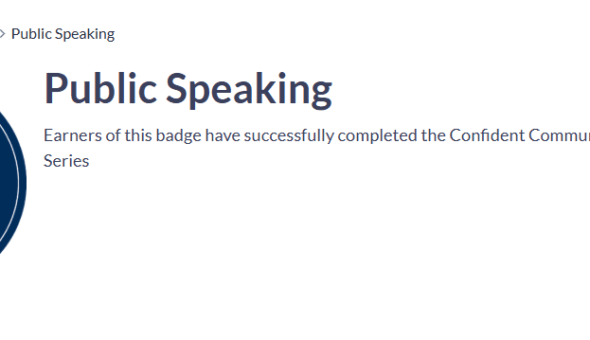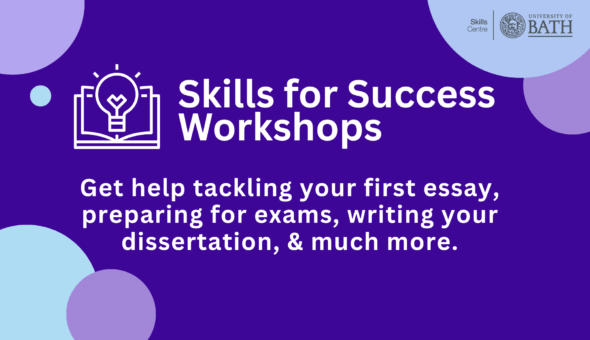The curious case of wanting what we avoid
Picture this: You are facing a challenging assignment, and you have two options. Option A: Ask GenAI to write it for you- clean, fast, effortless. Option B: Use GenAI as a thinking partner to wrestle through the ideas yourself- messy, slow, demanding.
If you are human (which, I am guessing you are), your brain is probably screaming "Option A!". But here is where things get fascinating: the very effort you are trying to avoid might be exactly what makes learning meaningful, memorable, and transformative.
Welcome to the Effort Paradox, one of psychology's most intriguing discoveries that is revolutionising how we think about learning, achievement, and yes, our relationship with GenAI.
What is the Effort Paradox?
The effort paradox reveals a fundamental contradiction in human behaviour: while we typically avoid effort as costly and aversive, effort is also valued and actively pursued. We simultaneously flee from hard work and find it deeply satisfying when we engage with it.
Think about it:
- You groan about starting that difficult assignment but feel incredibly proud when you finally crack the complex argument.
- You avoid the gym but experience a rush of accomplishment after a challenging workout.
- You procrastinate on learning new software but feel genuinely excited when you master it.
As cognitive psychologist Robert Bjork discovered with "desirable difficulties": when learning feels effortful, it is actually more effective. Easy feels good, but hard sticks better. The more you struggle strategically, the more likely you are to retain, grow, and improve.
The GenAI dilemma: Effort avoidance in the age of Artificial Intelligence
Enter GenAI, the ultimate effort-reduction machine. Need a literature review? Done in minutes. Want a research proposal? Generated instantly. Struggling with data analysis? AI's got your back.
But here is the plot twist: by removing all the effort from learning, we might be inadvertently removing all the learning from learning.
The Easy Button Trap
When we use GenAI to eliminate cognitive effort entirely, we fall into what I call the "Easy Button Trap":
- Surface Learning: You get information without developing understanding.
- Capability Atrophy: Your analytical muscles weaken from disuse.
- Confidence Collapse: Without effortful practice, you lose faith in your own abilities.
- Meaning Deficit: Achievements feel hollow when they require no struggle.
The irony? Current models suggest that exerting cognitive effort is aversive, and people avoid it whenever possible, yet this avoidance might be sabotaging the very outcomes we're seeking.
Flipping the script: GenAI as your effort amplifier
But what if we've been thinking about this all wrong? What if instead of using GenAI to eliminate effort, we used it to make our efforts more productive, more focused, and more meaningful?
The Productive Struggle Framework
Here's how to harness the effort paradox with GenAI:
1. Use GenAI to frame better challenges: Instead of asking: "Write my essay on climate policy" Try: "Help me identify the most challenging counterarguments to my thesis on carbon taxation, then question my reasoning until I can defend it sophisticatedly".
2. Leverage GenAI for effortful practice: Instead of: "Solve this statistics problem for me" Try: "Walk me through solving this step-by-step but make me explain each decision before revealing the next step".
3. Create cognitive resistance: Instead of: "Summarise these 20 research papers" Try: "Help me develop a framework for analysing these papers myself, then challenge my interpretations as I work through them".
4. Design desirable difficulties: Instead of: "Generate research questions for my project" Try: "Act as a devil's advocate for my research ideas, pushing me to refine and strengthen them through systematic challenge".
The transformative power of strategic struggle
When you flip from effort avoidance to strategic effort investment, something magical happens:
1. Deeper Learning Occurs
Your brain forms stronger neural pathways when it has to work for understanding. The struggle literally rewires you for better thinking.
2. Confidence Genuinely Builds
Nothing beats the authentic confidence that comes from knowing you have wrestled with ideas and emerged stronger. AI-generated work might fool others, but it cannot fool your subconscious sense of competence.
3. Creativity Explodes
Effortful thinking generates unexpected connections, novel insights, and creative breakthroughs that passive consumption simply cannot match.
4. Resilience Develops
Every time you push through intellectual difficulty, you build your tolerance for complexity and uncertainty, crucial skills for professional success.
Practical strategies for university life
For assignments and projects
- Use GenAI to identify gaps in your argument, not fill them.
- Ask GenAI to challenge your thesis with the strongest possible counterarguments.
- Get GenAI to play devil's advocate throughout your development process.
For research
- Let GenAI help you formulate better questions rather than find easy answers.
- Use GenAI to simulate peer review of your ideas.
- Ask GenAI to expose weaknesses in your methodology before you finalise it.
For problem-solving
- Get GenAI to create increasingly challenging variations of problems you are learning to solve.
- Use GenAI as a tutor that makes you explain your reasoning at each step.
- Ask GenAI to identify where your problem-solving approach might break down.
For skill development
- Use GenAI to design personalised practice challenges that push your current abilities.
- Get GenAI to provide immediate feedback on your efforts, not completed solutions.
- Ask GenAI to help you reflect on and improve your learning process.
The metacognitive revolution
Here is the deepest insight: the effort paradox reveals dissonance between the normative implications of effort and individual motivations to choose effortful tasks. Understanding this paradox makes you more conscious of your learning choices.
When you feel yourself gravitating toward the easy GenAI solution, pause and ask:
- What am I trying to achieve, quick completion or genuine competence?
- How can I use GenAI to make this more challenging rather than less?
- What would effortful engagement look like here?
- How can I design productive struggle into this task?
Your learning revolution starts now
The effort paradox is not just an academic curiosity; it's a blueprint for transforming your relationship with both learning and GenAI. Instead of asking "How can GenAI make this easier?", start asking "How can GenAI make my efforts more productive?"
Remember: easy feels good in the moment, but effort creates lasting transformation. The more you struggle (strategically), the more likely you are to retain, grow, and improve.
The choice is yours:
- Use GenAI as a shortcut to bypass intellectual challenge.
- Use GenAI as a catalyst to amplify intellectual engagement.
One path leads to temporary convenience. The other leads to lasting capability.
Which will you choose?
Ready to embrace productive struggle?
Start with something manageable this week- your time management:
- Instead of asking GenAI: "Create a study schedule for me".
- Try this: "Help me analyse why my current time management is not working, then challenge my assumptions about productivity until I can design a personalised system that actually fits my habits and goals".
- Notice how much more ownership you feel over the solution you have wrestled to create.
- Reflect on what you learned about your own working patterns and decision-making process.
The effort paradox reveals a profound truth: the struggles we avoid might be exactly what we need to become who we want to be. In the age of GenAI, this insight is not just helpful, it is revolutionary.
Respond



